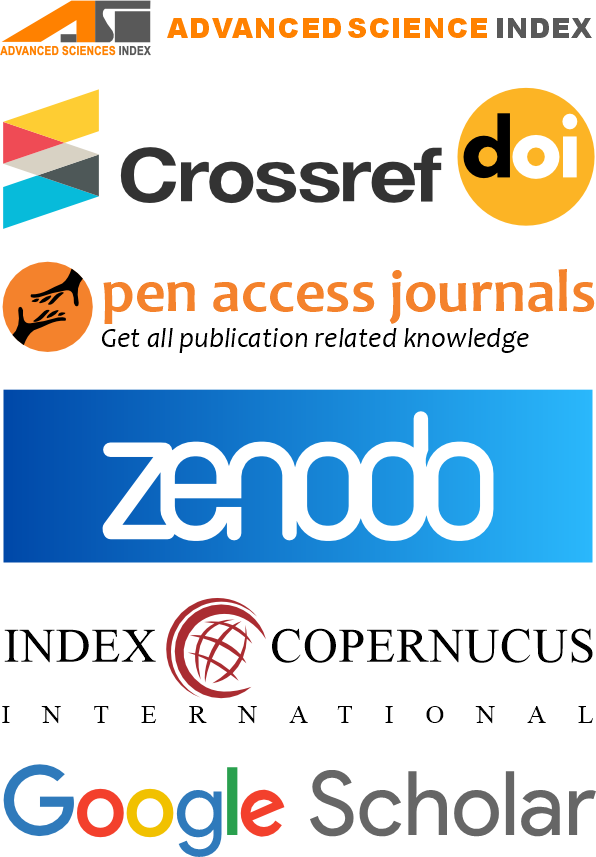Exploring the Role of Islamic Finance in Supporting SME Growth: A Review Study
DOI:
https://doi.org/10.62997/rl.2025.41077Keywords:
Islamic Finance, SME Growth, Economy, Business, SukukAbstract
Small and medium-sized businesses (SMEs) are the primary drivers of economic growth, leading to the creation of new jobs, the introduction of new products and services, and the development of innovative, environmentally sustainable technologies. Their activities help to stabilize the economy and significantly reduce the number of people living in poverty. Having said this, the fact remains that many SMEs are still not getting enough funding, a situation that not only halls the expansion but also threatens the very existence of these businesses. Islamic finance, which is the Shariah-compliant version of the conventional interest-based loans, is a feasible alternative that is inclusive as well as ethical. The restrictions of the study will be documents and publications that are from 2020 to 2024 in connection with the utilization of Islamic products in supporting the growth of SMEs. It highlights the limitations that organizations, including the promotion of financial education, are encountering, the impact of legislative frameworks, and how they act as barriers to the takeup of Islamic finance by SMEs. As per the results obtained, the infusion of Islamic finance in the SMEs' business plans can be expected to be a catalyst for equitable economic growth, the concomitant decrease of financial exclusion, and the creation of an entrepreneurial spirit. However, further empirical evidence is needed to quantify the local differences and to measure their effects over the long term.
References
Ahmad, T., & Zhang, D. (2020). A critical review of comparative global historical energy consumption and future demand: The story told so far. Energy Reports, 6, 1973–1991. https://doi.org/10.1016/j.egyr.2020.07.020
Ali, A. H., El-Gamal, S. Y., Elbarky, S., & Barakat, M. R. (2024). The impact of reverse logistics decision on environmental and social performance: the role of green integration and blockchain. International Journal of Integrated Supply Management, 17(3–4), 323–348. http://dx.doi.org/10.1504/IJISM.2024.142782
Ali, H. (2024). Islamic microfinance: landscape, models and future prospects. Walter de Gruyter GmbH & Co KG.
Ebrahim, M. S., Salleh, M. O., & Sheikh, M. (2014). Rationalizing Hybrid Financial Instruments from an Uṣūlī Perspective. arab law quarterly, 28(3), 295-306. https://doi.org/10.1163/15730255-12341284
Farooq, H. O., Rahman, D. S. U., Khan, H., Akram, I., Ashraf, M. Q., & Riasat, S. (2023). An Analysis Of The Correlation Between Social Religion And Economics Development. Bulletin of Business and Economics (BBE), 12(2), 253-259. https://bbejournal.com/BBE/article/view/479
Hanif, M., & Zafar, K. (2020). Developments in Islamic finance literature: Evidence from specialized journals. Journal of King Abdulaziz University: Islamic Economics, 33(2), 3-23. http://dx.doi.org/10.4197/Islec.33-2.1
Hanif, N., Ghazanfar, S., & Bashir, R. (2022). Feminist Stylistic Analysis of Kamila Shamsie’s Home Fire. Pakistan Languages and Humanities Review, 6(2), 102-114. http://dx.doi.org/10.47205/plhr.2022(6-II)09
Hasan, M., & Dridi, J. (2011). The effects of the global crisis on Islamic and conventional banks: A comparative study. Journal of International Commerce Economics and Policy, 02(02), 163–200. https://doi.org/10.1142/s1793993311000270
Ishaq, S. (2022). Small and Medium Enterprises'(SMEs) Access to Islamic Banking Finance in Pakistan (Doctoral dissertation, Aston University).
Islam, K. M. A., & Karim Miajee, M. R. (2018). Small and medium enterprises (SMEs) financing in Bangladesh: A review of literature. International Journal of Small and Medium Enterprises, 1(1), 11–15. https://doi.org/10.46281/ijsmes.v1i1.62
Ismail, S., Hassan, M. K., & Rahmat, S. (2023). Islamic social finance: Waqf, endowment, and SMEs. Edward Elgar Publishing.
Javaid, M. E., & Raza, S. H. (2025). Developing a Competitiveness Index for Manufacturing Firms: Insights from Pakistan. Interdisciplinary Journal of Management Studies,18(3), 507-523. http://dx.doi.org/10.22059/ijms.2025.378004.676806
Karim, R., Hasan, M. M., Waaje, A., Yesmin, S. H., & Roshid, M. M. (2023). Financial Performance of Bangladeshi Listed Commercial Banks: A Generation-based Analysis. International Journal of Finance & Banking Studies, 12(4), 46–56. http://dx.doi.org/10.20525/ijfbs.v12i4.3170
Kazak, H. (2024). Is Islamic financial management getting enough attention? A bibliometric analysis. Journal of Islamic Accounting and Business Research, 15(7), 1156-1177. https://doi.org/10.1108/JIABR-02-2023-0068
Khan, G., & Bhatti, R. (2021). Collection development and managment in the university libraries of Pakistan: A survey of users’ satisfaction. The International Information & Library Review, 53(3), 239–253. https://doi.org/10.1080/10572317.2020.1830739
Khokher, Z. U. R. (2021). The role of Islamic financial system in building sustainable infrastructure. Islamic Finance and Sustainable Development: A Sustainable Economic Framework for Muslim and Non-Muslim Countries, 151-190. http://dx.doi.org/10.1007/978-3-030-76016-8_8
Laila, N., Ratnasari, R. T., Ismail, S., Mahphoth, M. H., & Hidzir, P. A. M. (2022). Awareness towards waqf entrepreneurship in Malaysia and Indonesia: An empirical investigation. Al-Shajarah, 27(1), 77–100. https://doi.org/10.31436/shajarah.v27i1.1391
Laila, N., Ratnasari, R. T., Ismail, S., Mohd Hidzir, P. A., & Mahphoth, M. H. (2023). The intention of small and medium enterprises' owners to participate in waqf: the case of Malaysia and Indonesia. International Journal of Islamic and Middle Eastern Finance and Management, 16(3), 429-447. http://dx.doi.org/10.1108/IMEFM-01-2022-0014
Qadri, H. M. U. D., & Bhatti, M. I. (2025). Islamic Finance in the Modern Era (Vol. 25). Retrieved January. https://doi.org/10.4324/9781003366751
Qadri, H. M.-U.-D., & Bhatti, M. I. (2024). Islamic finance in the modern era: Digitalization, fintech and social finance. Routledge. http://dx.doi.org/10.4324/9781003366751
Riaz, S., Saleem, Q., Ishaq, H. M., & Aqdas, R. (2021). The determinants of family Takaful demand in Pakistan. Hamdard Islamicus, 44(2), 77-100.
Tariq, S. (2021). Use of Neuro-Market Approach to Provide Better Marketing Proposition for Banking Products/Financial Banking Accounts to Solve Issue of Financial Inclusion [Master Thesis, Department of Business Studies Pakistan Institute of Development Economics].
Tariq, W., Tariq, A., & Nemilentseva, M. (2024). Advancing Gender Equality in Banking: The Role of Female Directors and Board Monitoring in Driving Financial Performance. Journal of Economic Sciences, 3(2), 227-244. http://dx.doi.org/10.55603/jes.v3i2.a8
Waris, M. A., Arshad, Z., & Waqas, M. (2025). Evaluation of Customer Satisfaction and Economic Efficiency: A Study of Conventional and Islamic Insurance Industry in Pakistan. Pakistan Journal of Humanities and Social Sciences, 13(1), 542–561. http://dx.doi.org/10.52131/pjhss.2025.v13i1.2774






